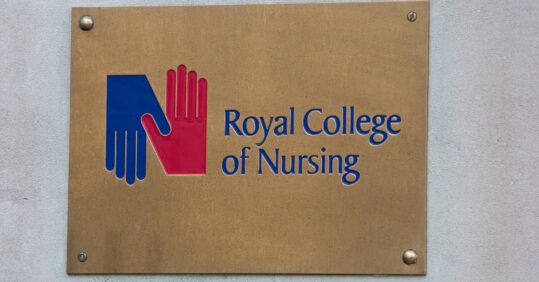RCN working towards ‘robust’ suicide prevention programme for nursing

A newly created suicide prevention steering group at the Royal College of Nursing (RCN) is working towards developing a ‘robust, evidence-based’ suicide prevention programme for the profession.
The move comes amid the launch of a new suicide prevention toolkit for health professionals by NHS England and as the government unveiled its new national suicide prevention strategy.
Aa part of National Suicide Prevention Week, nursing staff and senior healthcare figures gathered at RCN headquarters on Monday to discuss the need for a ‘united approach’ to preventing suicide in nursing.
At the RCN’s annual congress earlier this year, members voted for the college to lobby the government for an integrated suicide prevention programme for the nursing workforce across the UK.
Members had discussed the need for a ‘consistent and coordinated approach’ while sharing tragic stories of nurses and colleagues who had died by suicide.
Related Article: Diagnosis Connect service will link people to advice from charities
In an update to members around this work, RCN member Ruth Bailey who led the call for action at RCN Congress, said a steering group for suicide prevention at the college had now been established.
And she said this group was now working towards creating ‘a robust, evidence-based’ suicide prevention programme.
As highlighted by the recently published NHS England toolkit for preventing suicide within the health and care workforce, nurses are at ‘particular risk’ of suicide. And female nurses have a 23% higher rate of suicide than other women.
The RCN event helped launch the toolkit, which had input from RCN members and was spearheaded by the chief nursing officer for England, Dame Ruth May.
Stephen Jones, RCN professional lead for mental health nursing, said: ‘RCN members made it clear at congress this year – suicide is a serious issue for the nursing workforce, and nursing staff deserve adequate mental health support.
‘If nursing staff can’t access support, how are they going to support their patients?’
He added: ‘It’s brilliant to see the progress that has already been made within the RCN as we push for implementation of an integrated suicide prevention programme for the nursing workforce.
Related Article: CVD prevention must be national health priority, says report
‘Launching the NHS England toolkit is also a great step forward, placing the plight of nursing staff and other health care professionals at the heart of national suicide prevention strategy.’
Mr Jones warned of the ‘personal cost’ often felt by nursing staff who ‘contribute so much to our society’.
‘This is the start of a journey,’ noted Mr Jones, who was also involved in the creation of the NHS toolkit.
‘Let’s work together to keep the momentum and do what we can to support nursing.
‘When you support nursing staff, you’re supporting patients.’
Related Article: Postnatal contraception advice reduces the risk of back-to-back pregnancies
Meanwhile, Dr Emma Wadey, deputy director of mental health nursing at NHS England and RCN member, said: ‘We should all be aware of risks of suicide because we can all take steps to prevent it.’
The new NHS toolkit ‘can assist organisations to embed suicide prevention strategies in their health and wellbeing policies and guide the approach to supporting those at risk of suicide within the workforce’, she added.

See how our symptom tool can help you make better sense of patient presentations
Click here to search a symptom




